What does it feel like to be part of healthcare history? Ask anyone who was in Kamuzu Central Hospital’s OR on Thursday, February 2, 2023.
The history-making team was led by Dr. Natasha Ngwira, MD from Lilongwe; Dr. Anuj Parikh, MD from the US; and Dr. Baker Henson, MD from the US, who performed the first ever Laparoscopic Colostomy Reversal at Malawi’s Kamuzu Central Hospital (KCH)!
Patients travel to KCH from all over Malawi for stoma creation and reversals and his procedure was important for a number of reasons.
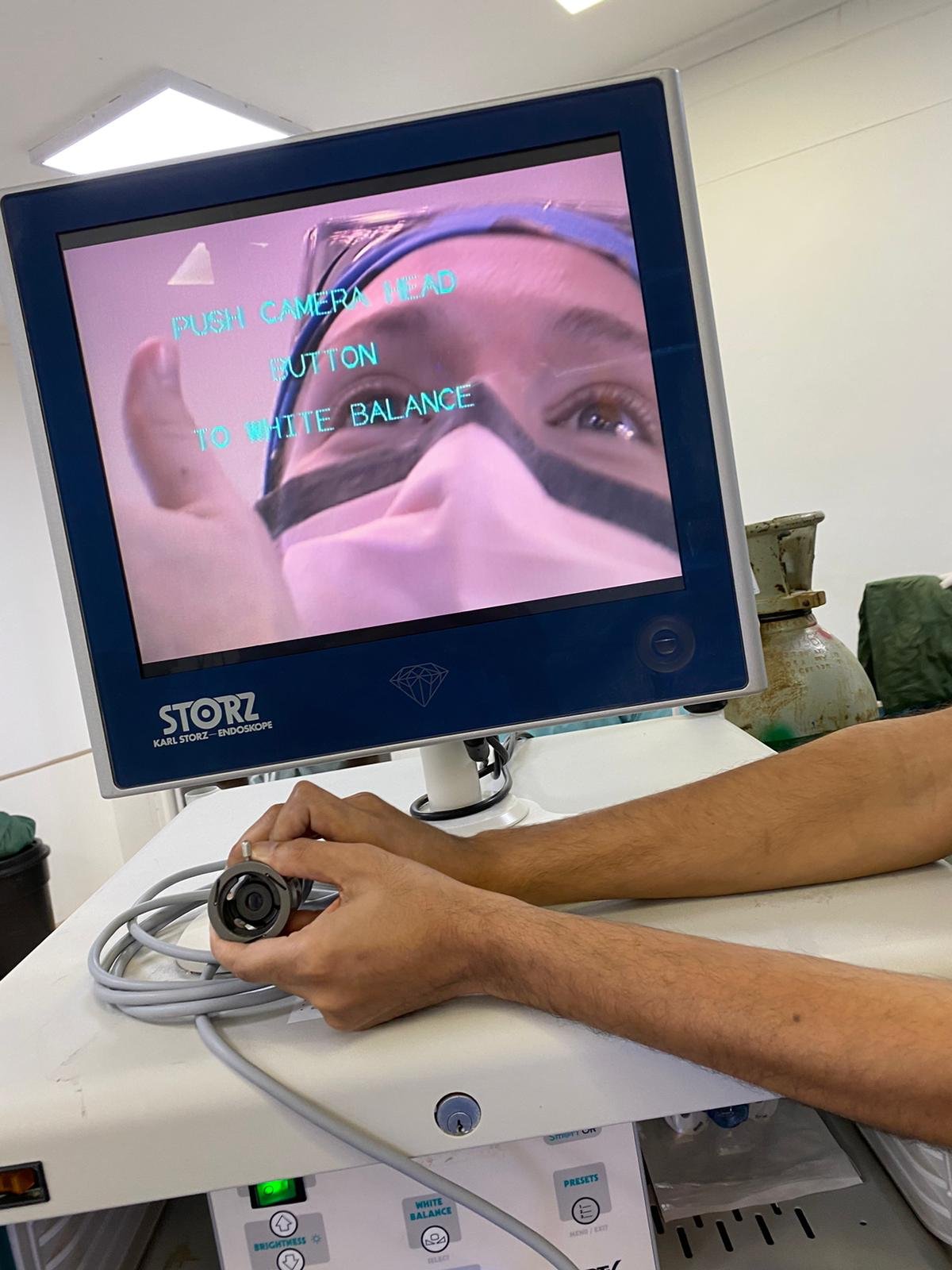
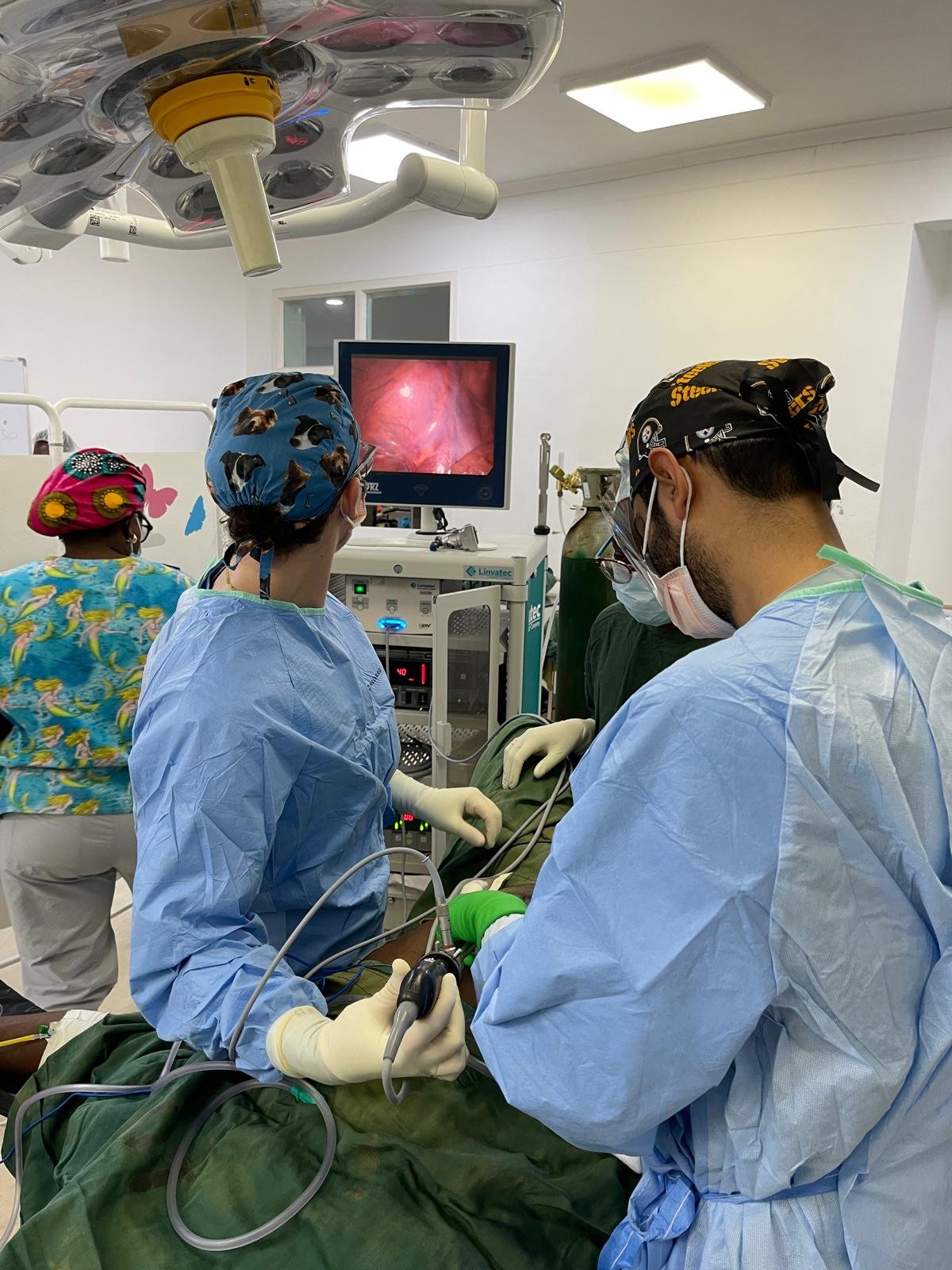
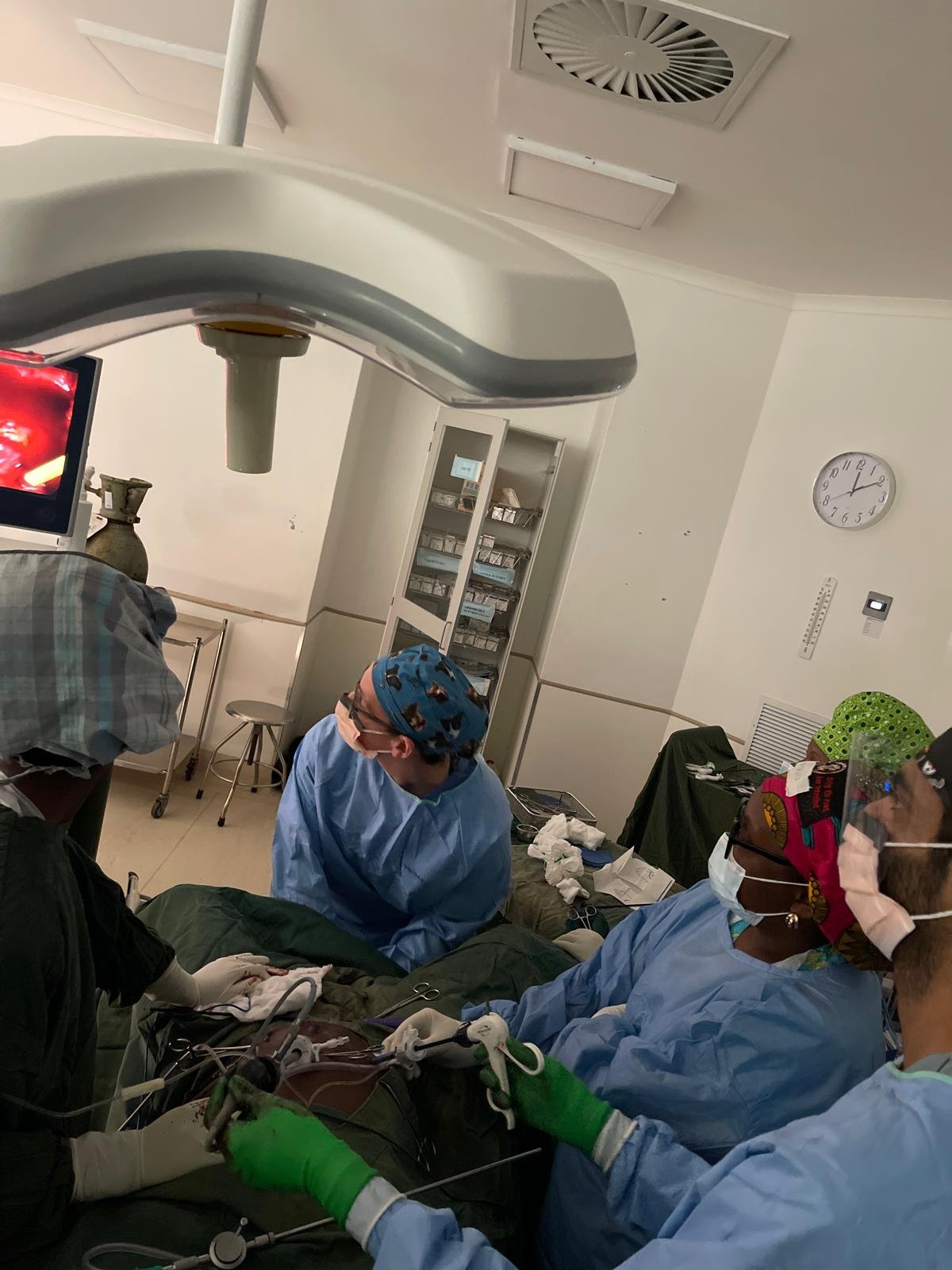
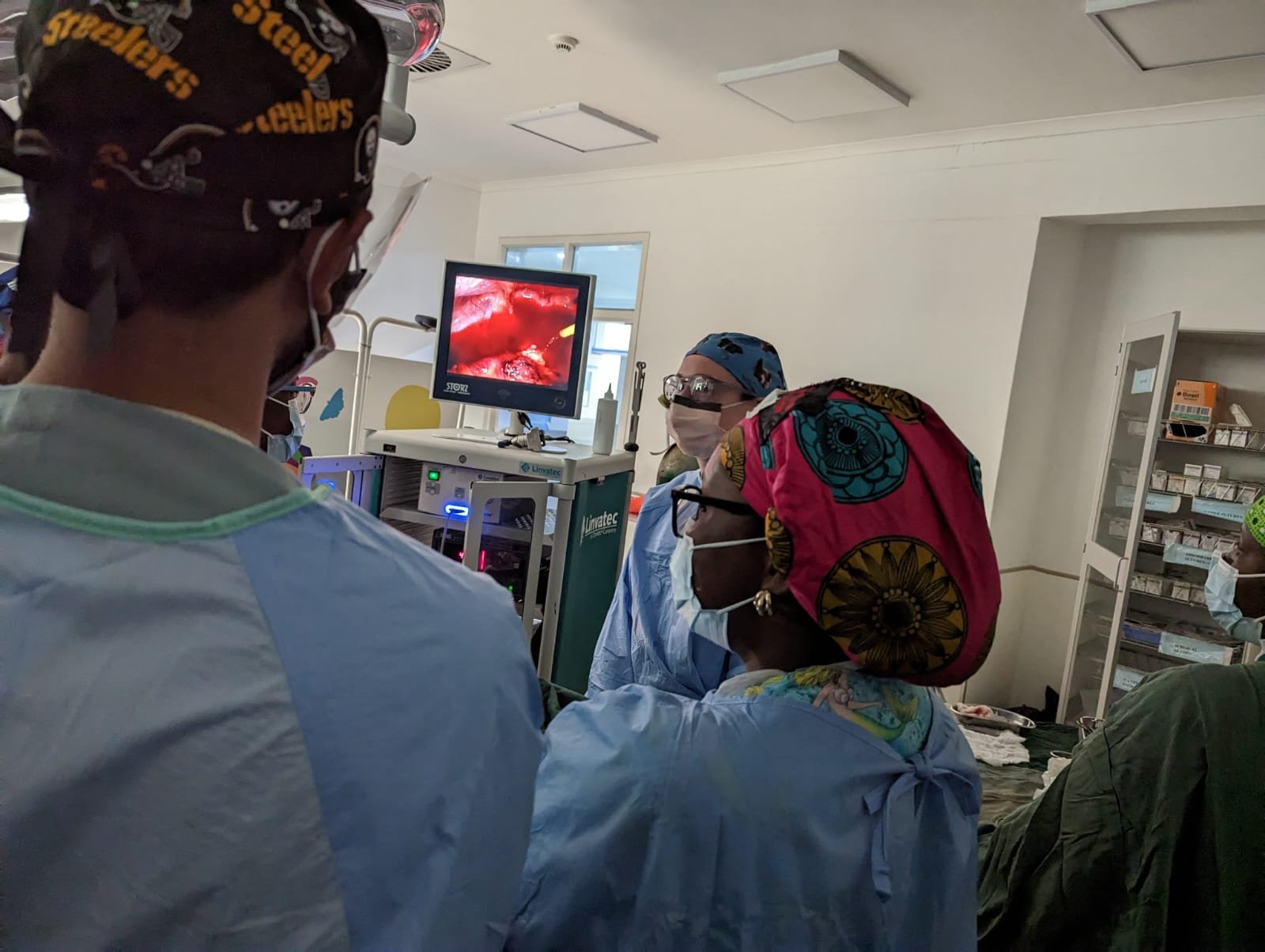
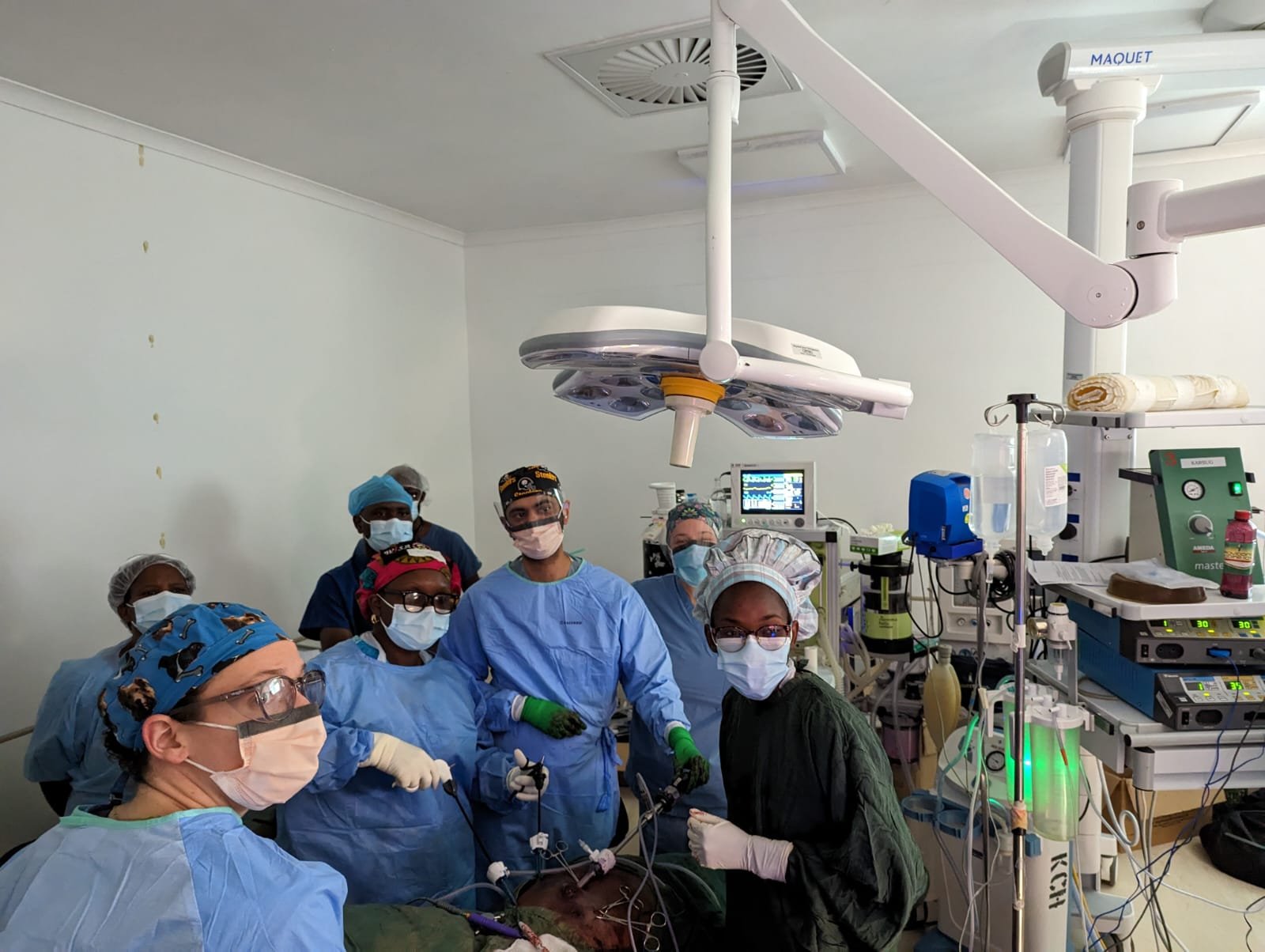
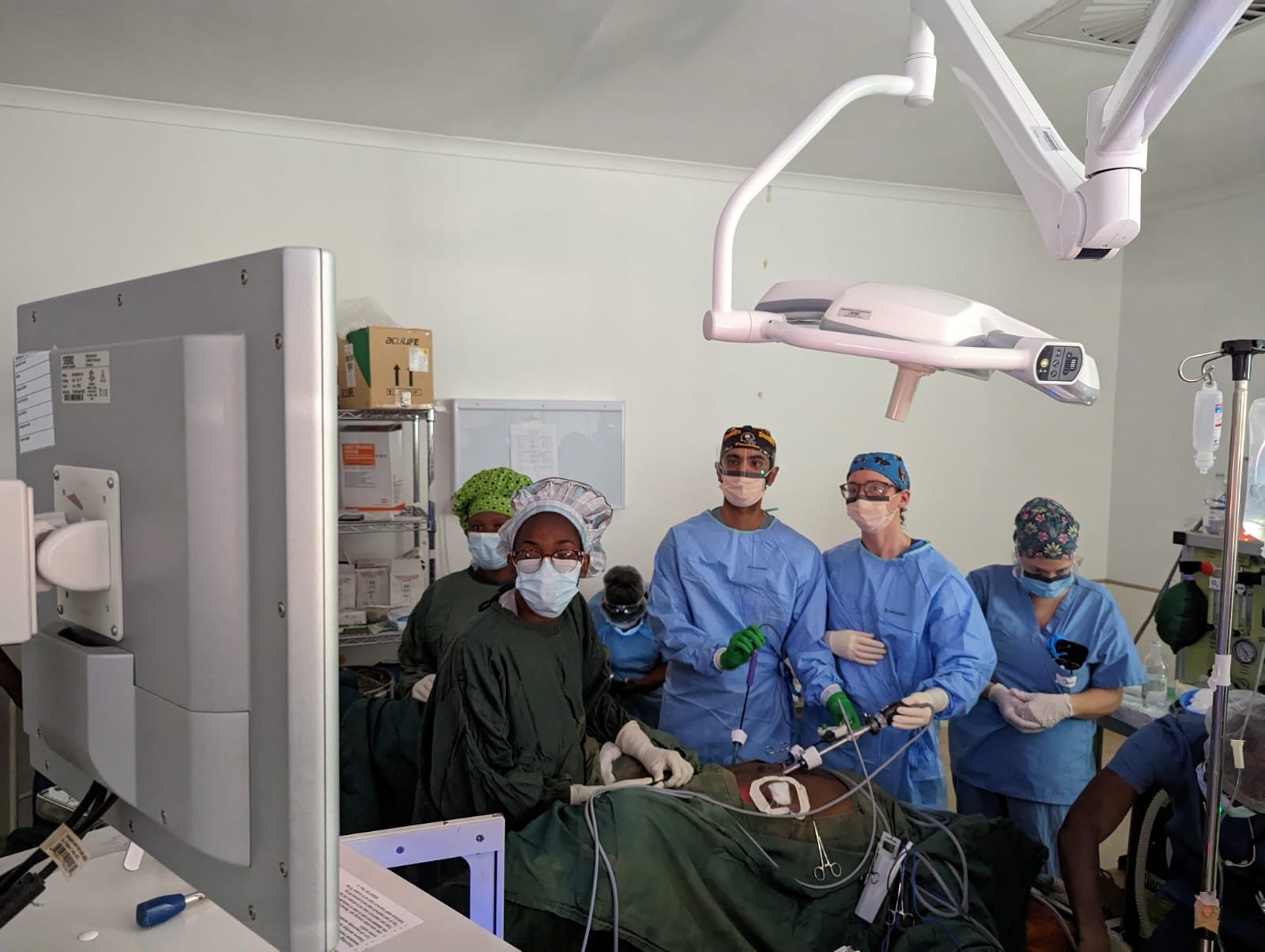
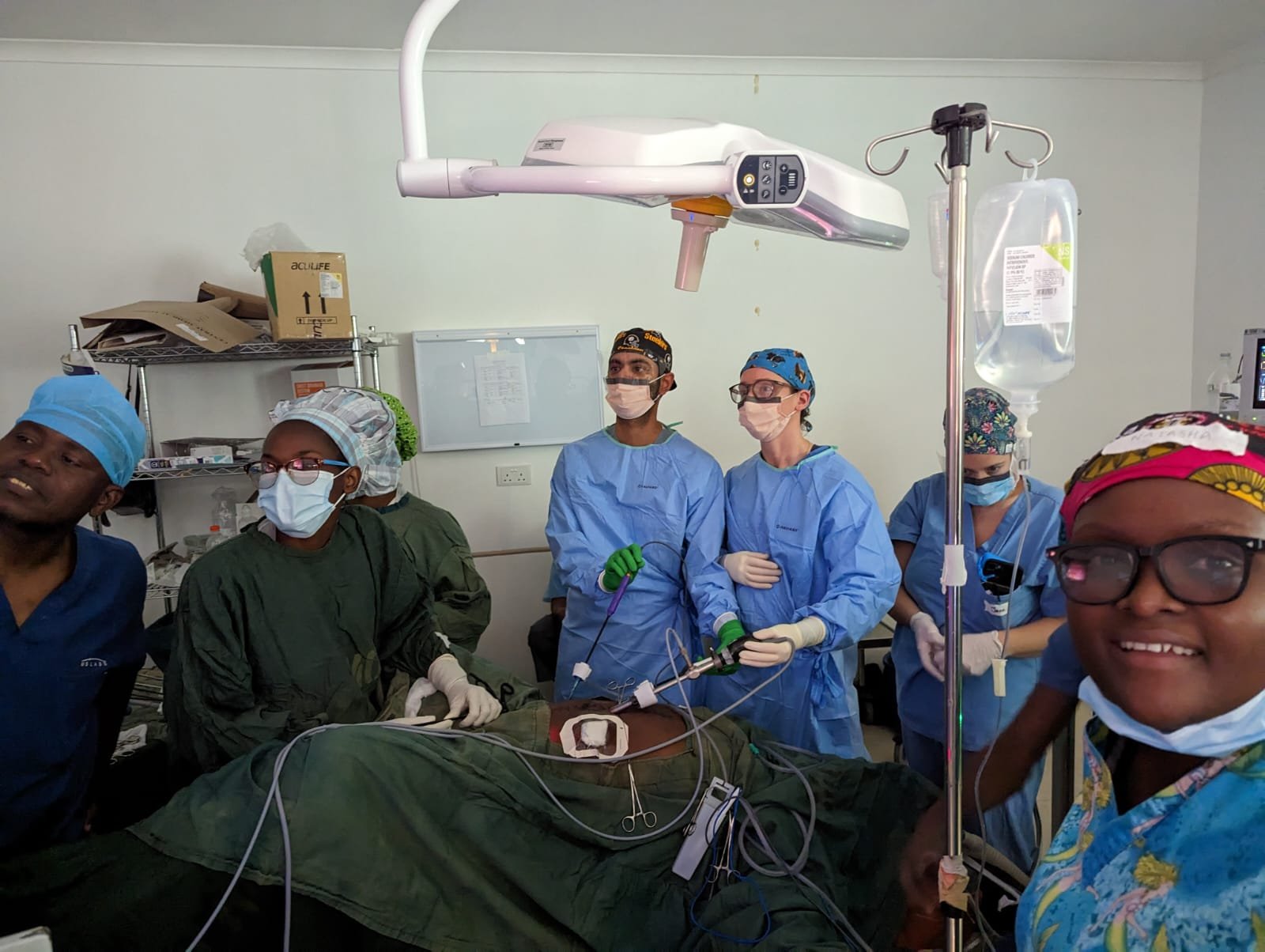
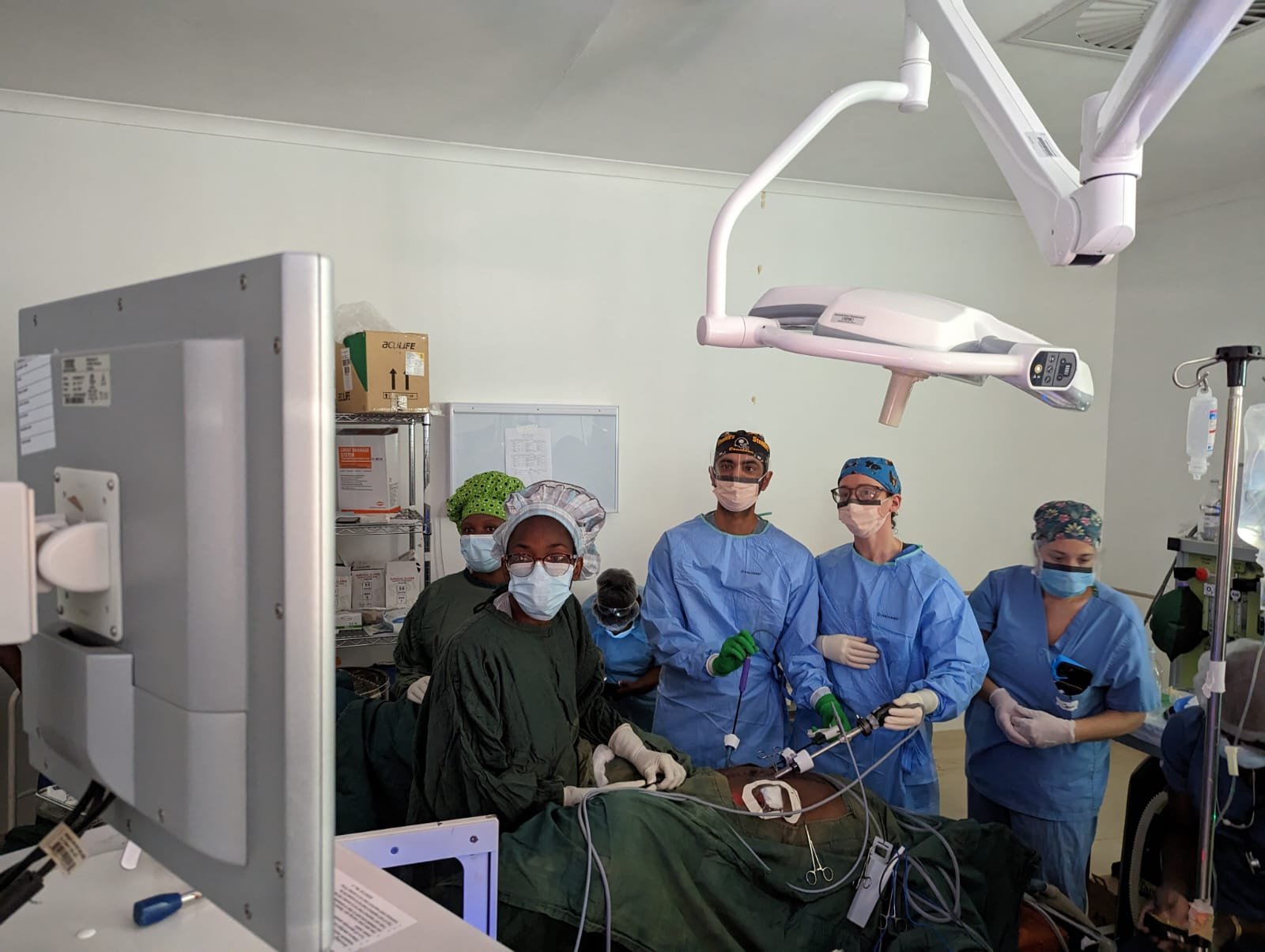
Prior to this successful procedure, laparoscopic technology had been used in other surgical procedures at KCH, but all colostomy reversals at KCH were done using the open procedure.
Colostomy, also known as Hartmann’s Procedure, is a surgery to connect the colon to an external, surgically created hole, called a stoma. After colostomy surgery, intestinal contents exit the body via the stoma, rather than through the anus, giving the colon time to heal. During this time, the patient lives with a bag attached to the body to collect waste. Colostomies are done for many reasons including cancer, bowel impaction, diverticulitis, or trauma.
In Malawi, living with a stoma presents special challenges for patients who are already living in difficult conditions with limited resources, further impacting their quality of life. A colostomy reversal is typically completed 2-12 months after the colostomy, depending on the healing of the intestines and the initial reason for the procedure. Reversal surgery is done to allow the body to function in the normal manner once again, and can allow patients to return to their normal way of life, which has a huge positive impact, especially in Malawi.
Until February 2023, all colostomy reversal surgeries (Hartmann’s Reversals) were done via open procedure (large incision with direct access for surgeon’s tools). AHA and KCH’s teams partnered to perform the hospitals’s first ever laparoscopic colostomy reversal. Laparoscopic procedures use tiny incisions to insert necessary tools guided by cameras.
Using laparoscopic procedures for colostomy reversal have been found to have many benefits. In the U.S., laparoscopic procedures are associated with a shorter length of hospital stay as compared to open procedure (average of 6.7 days compared to 10.8 days; 2014 study). Laparoscopic surgeries have also been found to have fewer complication rates and a faster return of bowel function, which means a faster return to normal functioning overall.
Additionally, in Malawi, there are shortages of bandages and other wound care products. Open colostomy reversals have a larger incision site, which requires a larger bandage for a longer period of time. Laparoscopic surgeries require smaller incisions, which require smaller bandages for a shorter period of time. Using laprascopic techniques decreases the burden on Malawi’s already thinly-stretched resources. Smaller surgical sites are easier for patients to keep clean and covered, allowing for a faster healing process.
AHA was very excited to know KCH has had a basic set-up for laparoscopic procedures, and one of their surgeons, Dr. Natasha Ngwira, MD, has received training on use of the laparoscopic surgical set-up. In partnership with Dr. Ngwira, AHA prepared for and completed the laparoscopic colostomy reversal.
AHA has partnered with KCH for a number of years to complete colostomy reversal surgeries. The two organizations focus on colostomy reversals because there are frequently postponed because they are essential but not time-sensitive, causing long backlogs of patients in need of reversal surgeries. Colostomy reversals also have major positive impacts on the quality of a patient’s life.
Each time a team from AHA comes to Malawi for a surgical camp, a key component is mentoring local staff to exchange ideas, develop skills, and bring new technologies. Partnering to perform KCH’s first ever laparoscopic colostomy reversal is a prime example of the importance of this mentorship. Educating and empowering local staff to do more life-changing surgeries is part of AHA’s mission and vision.
We are so proud of KCH’s surgical team, and the team from the US, who successfully carried out the first ever laparoscopic colostomy reversal surgery, and look forward to many more surgical advances in the years to come.
Impressed with this history-making procedure? Tell us in the comments below!
